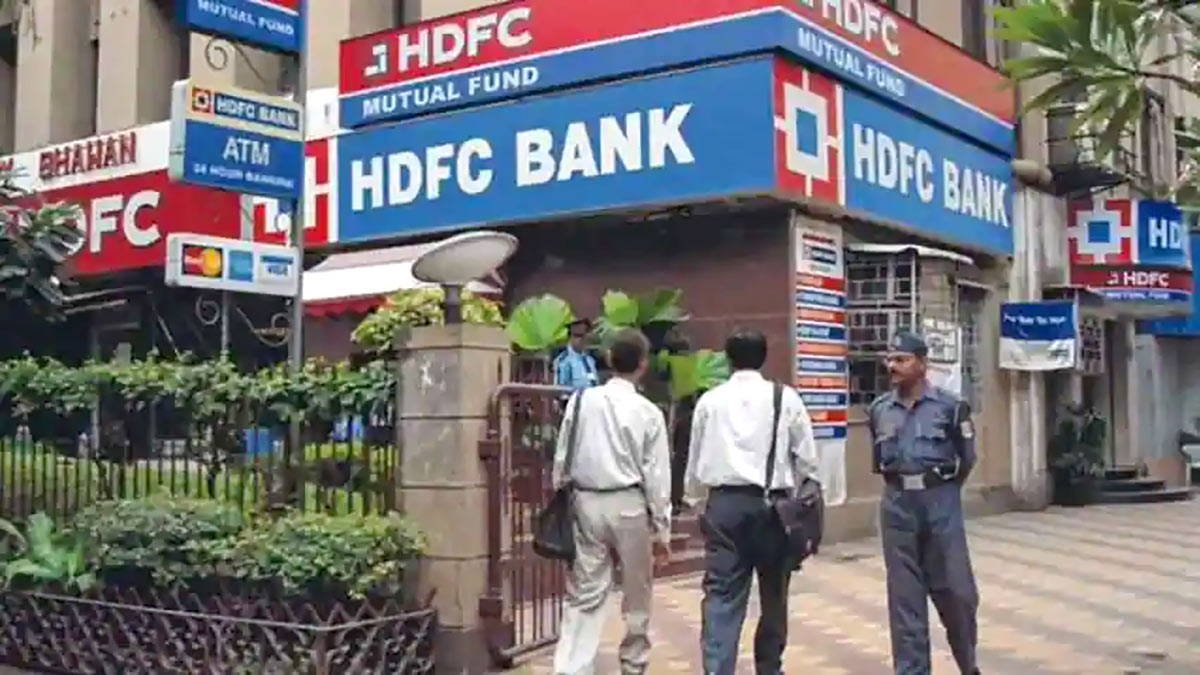HDFC twins’ merger: RBI may take call on relaxations closer to date
The Reserve Bank of India is likely to take a call on the relaxations sought by HDFC Bank in relation to the merger, as the date of merger draws closer, sources said.
Photograph: PTI Photo
The HDFC twins, which announced their decision to merge in April last year, received National Company Law Tribunal’s (NCLT’s) approval recently — a key milestone to close the deal in due time.
The management of both the entities had said that it will take 15-18 months for the merger.
With most of the key approvals in place, the entities now expect the merger to be completed by July this year.
One of the key issues being closely watched by investors and other stakeholders was the regulator’s view on the forbearance.
HDFC Bank has requested the RBI for a phased approach to meet the statutory liquidity ratio (SLR)/cash reserve ratio (CRR) and priority sector lending (PSL) requirements.
The bank also sought phase-wise grandfathering of certain assets and liabilities and in respect of some subsidiaries.
The bank has asked the RBI for two-three years to be compliant with the CRR/SLR, and PSL requirements of existing HDFC assets.
HDFC — a non-banking financial company (NBFC) — does not have CRR/SLR and priority sector obligations like banks.
“RBI has made it very clear that it will not give an inkling of what its thought process is on the forbearances. It may be closer to the date of the merger,” said a source.
HDFC Bank is not ‘banking’ on the regulatory relaxations, as it has embarked on a massive deposit mobilisation exercise so that CRR/SLR requirements can be met after HDFC’s assets are merged with the bank.
HDFC’s Rs 5-trillion advances will be added to HDFC Bank’s Rs 14 trillion, post the merger.
HDFC Bank is aiming to add Rs 1-trillion liabilities every quarter, backed by its huge branch expansion.
The regulatory forbearance, if it comes, will be an ‘icing on the cake’, sources said.
“Both HDFC and the bank are working hard on carrying surplus reserves and government securities more than the regulatory needs.
“This is because when the merger happens, it has enough cushion to meet the regulatory requirements.
“On the priority sector requirements, there will be a larger need, and therefore, the bank is building it organically,” the source said.
The bank will have time to meet the priority sector requirements, as they are based on the previous year’s net bank credit.
They will have a 15-month window before the ‘meter starts to kick in’ on priority sector.
Even though HDFC Bank is on the forefront of digital offerings, it believes branch density in the country is low, given the size and population of India.
The bank sees branches as ‘engagement centres’, and many of them will be predominantly digital.
They will have a cash dispenser, cash recycler and kiosk for NEFT and RTGS transactions, with only two staffers.
Another area that it is waiting to see the regulator’s view is transfer of subsidiaries from HDFC to HDFC Bank and stake in the subsidiaries.
“There are areas, which are necessary to have dispensation.
“For example, the grandfathering of liabilities and subsidiaries of HDFC being the subsidiaries of the bank,” the source said.
The entities have requested the regulator to allow them to hold a 50 per cent stake in HDFC Life, the life insurance subsidiary of HDFC. HDFC Life is set to become the bank’s subsidiary after the merger.
Currently, HDFC holds around 48 per cent stake in HDFC Life, 50 per cent in HDFC Ergo General Insurance, and 52.6 per cent in HDFC Asset Management Company.
For all the latest business News Click Here

